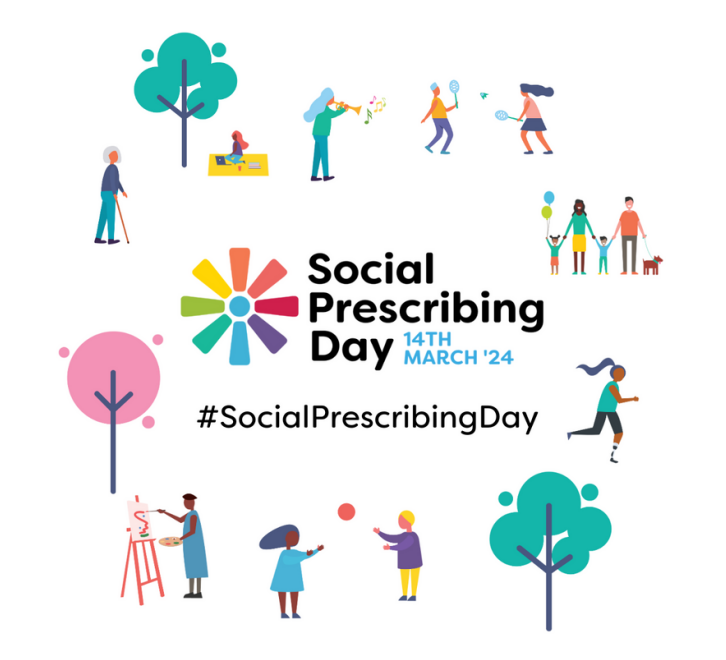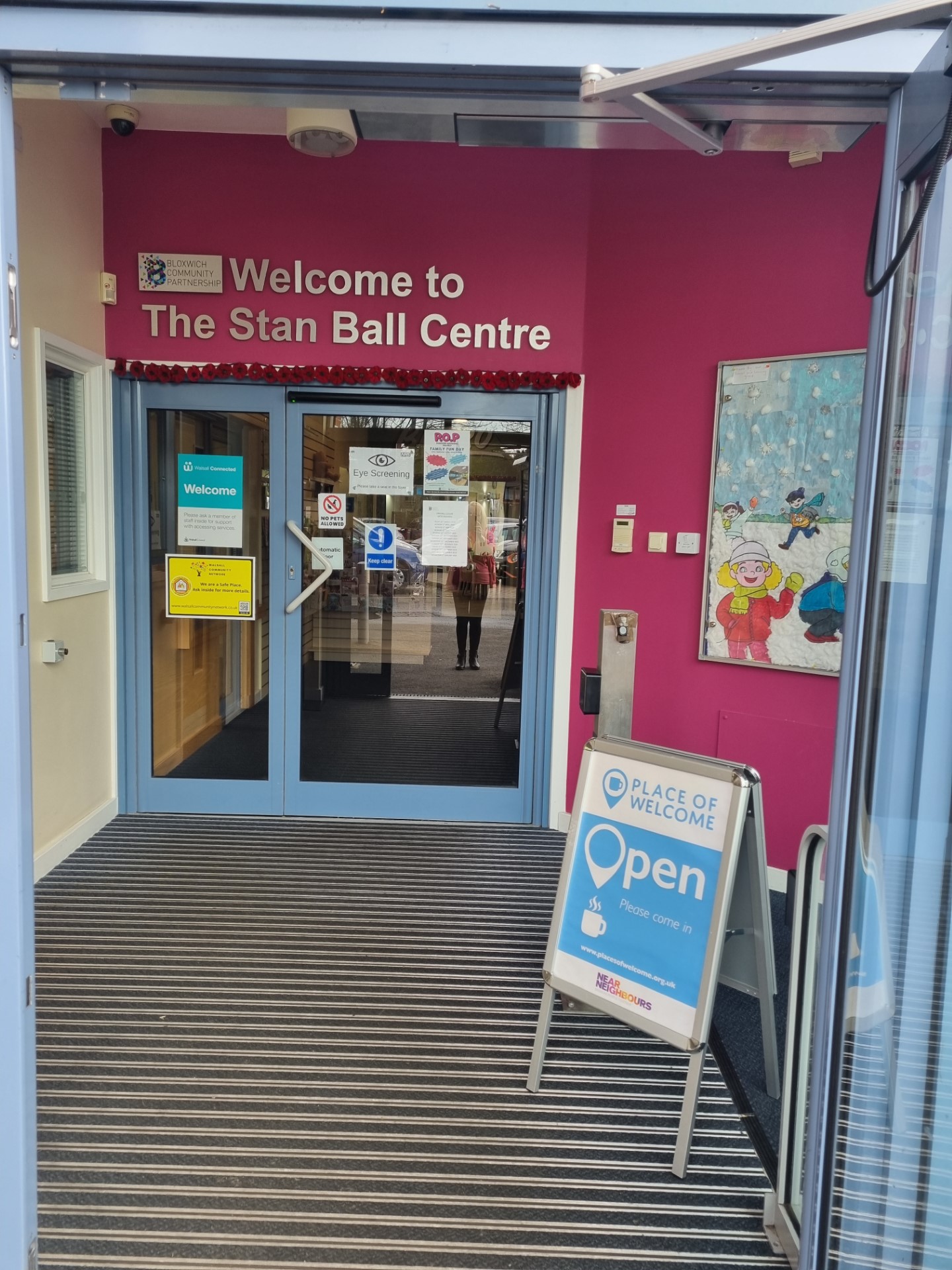 Social Prescribing is a phrase that is being heard more and more – but what is Social Prescribing and why is it important?
Social Prescribing is a phrase that is being heard more and more – but what is Social Prescribing and why is it important?
Reports show that more and more people are feeling lonely and isolated, less connected with people and their communities and this has an impact on health. The Campaign to End Loneliness share the following statistics on their website:
- In 2022, 49.63% of adults (25.99 million people) in the UK reported feeling lonely occasionally, sometimes, often or always.
- Approximately 7.1% of people in Great Britain (3.83 million) experience chronic loneliness, meaning they feel lonely ‘often or always’.
The World Health Organisation claims the health risks of loneliness and isolation are:
- Up to 50% increase in risk of developing dementia
- Up to 25% increase in risk of early death
- Up to 30% increase in risk of stroke and cardiovascular disease, and
- Comparable to smoking daily, excessive drinking and obesity.
NHS England describe Social Prescribing as an approach that connects people to activities, groups, and services in their community to meet the practical, social and emotional needs that affect their health and wellbeing.
Social prescribing is an all-age, whole population approach that works particularly well for people who:
- have one or more long term conditions
- who need support with low level mental health issues
- who are lonely or isolated
- who have complex social needs which affect their wellbeing.
But there can be other reasons why people lose connection with their friendship groups or communities, often through changes in circumstances, such as moving to a new area, divorce or the loss of a loved one, unemployment or retirement, and becoming a parent.
Social Prescribers may have different titles such as link worker or community navigator – but they all have the same purpose and that is to give social support where medication cannot help. They refer people to a range of local, non-clinical services, supporting people’s needs in a person-centred way, whilst encouraging patients to take control of their own health.
Social prescribing can involve a variety of activities which are typically provided by voluntary and community sector organisations. Examples include volunteering, arts activities, group learning, gardening, befriending, cookery, healthy eating advice and a range of sports as well as connecting people with statutory services for example housing, financial and welfare advice.
Places of Welcome are one of many options Social Prescribers can refer people to and with around 180 registered Places of Welcome in the Lichfield Diocese (Black Country, Staffordshire, Stoke-on-Trent and North Shropshire) there are plenty to choose from (click here to find your nearest Place of Welcome www.placesofwelcome.org.uk)
Here are just a couple of wonderful stories of how Social Prescribing has made a difference to people in our communities (names have been changed for anonymity):
 Barbara self-referred to the Making Connections programme at Stan Ball Centre following the death of her husband and the subsequent loneliness she felt. With support from a member of the Making Connections team she started attending a community group where she made friends. With one of her new friends, she then started attending another community venue which then became a regular weekly outing. She then began to attend the Place of Welcome at Stan Ball Centre, as well as joining a choir! Barbara’s confidence has grown to the extent that she has now become a volunteer at the daily Place of Welcome events in the Bistro, helping with teas and coffees, as well as extending a warm welcome to others. Barbara is now a fully-fledged volunteer staff member, proud of her ID badge, offering 2 days per week invaluable support.
Barbara self-referred to the Making Connections programme at Stan Ball Centre following the death of her husband and the subsequent loneliness she felt. With support from a member of the Making Connections team she started attending a community group where she made friends. With one of her new friends, she then started attending another community venue which then became a regular weekly outing. She then began to attend the Place of Welcome at Stan Ball Centre, as well as joining a choir! Barbara’s confidence has grown to the extent that she has now become a volunteer at the daily Place of Welcome events in the Bistro, helping with teas and coffees, as well as extending a warm welcome to others. Barbara is now a fully-fledged volunteer staff member, proud of her ID badge, offering 2 days per week invaluable support.
 Daniel was first brought to Muddy Boots Gardening Project Place of Welcome in Burton Upon Trent by his Support Worker, two years ago. His life is impacted by schizophrenia and at that time he was also feeling very isolated and had difficulty communicating, especially with unfamiliar people. Sitting in a room with several others was a challenge for Daniel, but the very next week he arrived with his friend Bill in a shared taxi with no support worker and has been coming ever since, even when Bill can’t come. Daniel is a friendly, gentle man who volunteers have enjoyed helping to get to know other regulars, gradually talking more freely - and occasionally bringing his guitar and singing songs of his own composition. He continues to struggle with his mental health but is able to talk about it from time to time. Daniel has also taken part in gardening throughout the year and says that he enjoys the company and the variety of things to do.
Daniel was first brought to Muddy Boots Gardening Project Place of Welcome in Burton Upon Trent by his Support Worker, two years ago. His life is impacted by schizophrenia and at that time he was also feeling very isolated and had difficulty communicating, especially with unfamiliar people. Sitting in a room with several others was a challenge for Daniel, but the very next week he arrived with his friend Bill in a shared taxi with no support worker and has been coming ever since, even when Bill can’t come. Daniel is a friendly, gentle man who volunteers have enjoyed helping to get to know other regulars, gradually talking more freely - and occasionally bringing his guitar and singing songs of his own composition. He continues to struggle with his mental health but is able to talk about it from time to time. Daniel has also taken part in gardening throughout the year and says that he enjoys the company and the variety of things to do.
This short video about Social Prescribing created by the National Academy for Social Prescribers aligns so well with the Places of Welcome ethos, highlighting key messages of belonging, community, friendship and hope.